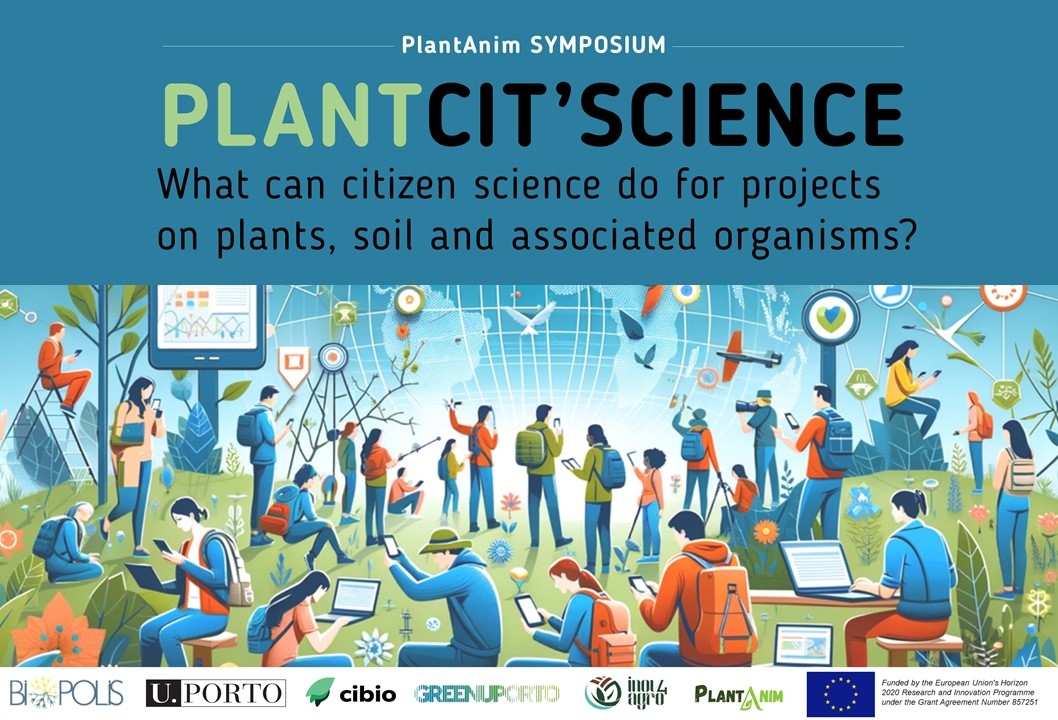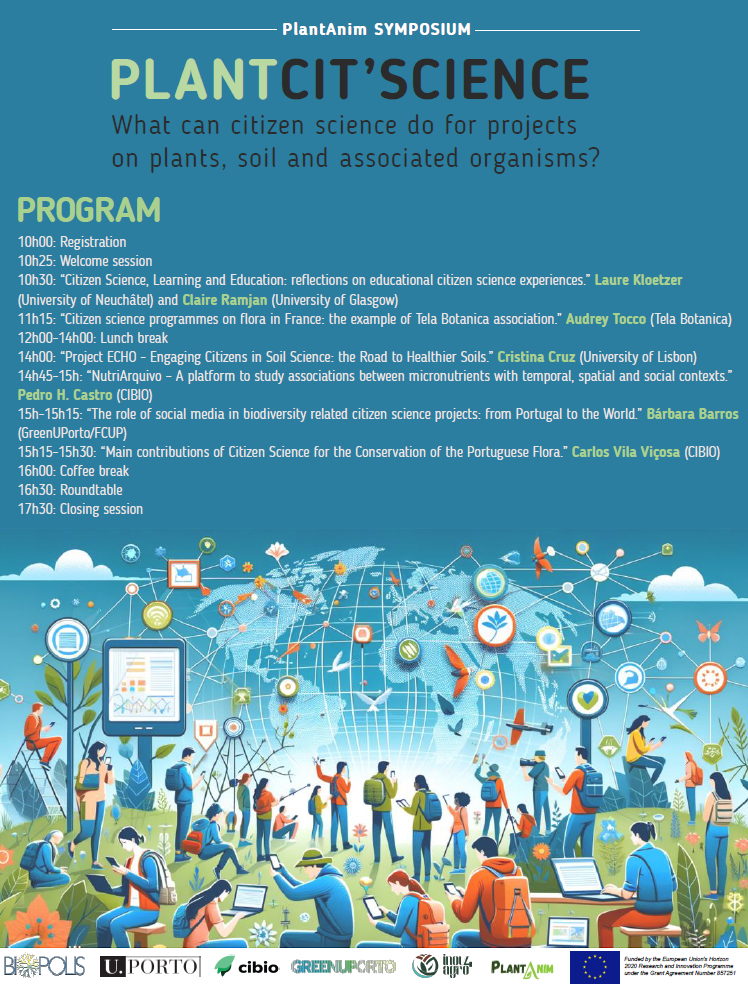PlantAnim Symposium 2024: PLANTCIT'SCIENCE

PlantAnim is promoting a Symposium on Citizen Science and what it can do for projects on plants, soil and associated organisms organized by Ruth Pereira (GreenUPorto/FCUP) and Gabriel Marais (BIOPOLIS & CIBIO).
This event will take place on 28 June, with 3 invited speakers and up to 5 selected contributions of 15 min each (questions included).
What can citizen science do for projects on plants, soil and associated organisms?
Citizen science consists in associating non-academic people to research projects, in general to collect data. It offers two benefits: (i) participation of many people can create manpower for data collection that is impossible to reach with academics only, (ii) citizens are involved in research projects, which increases awareness on how public money is spent on science and, (iii) public awareness and society connection with nature and natural resources is promoted. Citizen science is particularly relevant for plant biology because of the many amateur botanists existing in around the world. These are expert citizens who can make major contributions to research. In soils science, citizens can also bring huge benefits, contributing for a more extensive and regular monitoring of soil quality and health. In this symposium, we are going to discuss how citizen science can make a difference in research about plants, soil and associated organisms. The objective is to learn the typology of projects in which citizen science can be used and also the specific methodology for implementing citizen science-based projects, main difficulties faced and histories of success.
Invited speakers:
Audrey Tocco botanical project manager at Tela Botanica (https://www.tela-botanica.org/), an international network of amateur botanists based in Montpellier, France. Tela botanica is involved in several citizen science project. One of them is about Pl@ntNet, an application to identify plants using a smartphone developed by a research unit in Montpellier, in which data collected through citizen science was critical for training the AI models of the application (https://plantnet.org/en/).
Laure Kloetzer (University of Neuchâtel) and Claire Ramjan (University of Glasgow), Chairs of the Working Group on Learning and Education in Citizen Science of the European Citizen Science Association (https://www.ecsa.ngo/ecsa/).
Cristina Cruz (University of Lisbon), coordinator of the Project ECHO - Engaging Citizens in Soil Science: the Road to Healthier Soils (https://ce3c.ciencias.ulisboa.pt/research/projects/ver.php?id=286).

